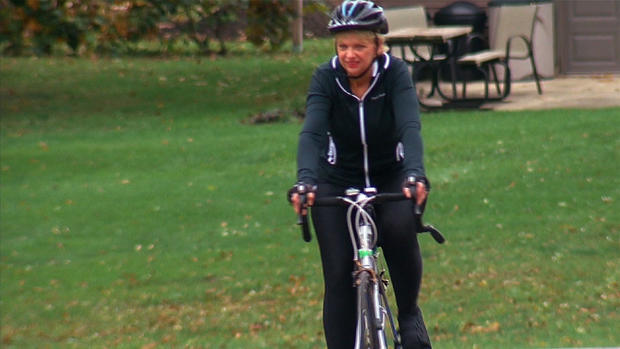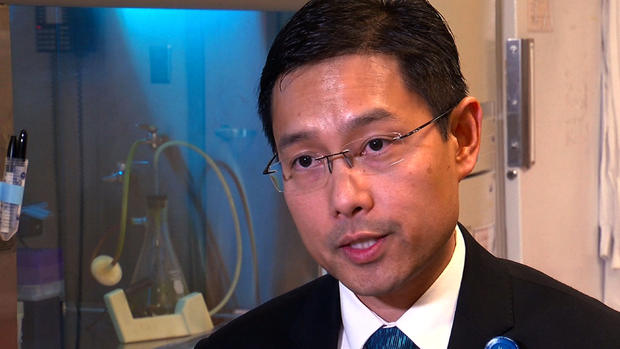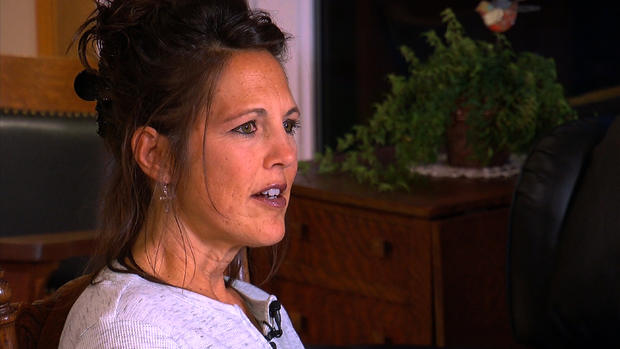'Cancer Avatars' Giving Hope To Patients
MINNEAPOLIS (WCCO) -- What if doctors could know the exact therapy needed to treat ovarian cancer?
It could save precious time and also help patients avoid the side effects of ineffective chemotherapy drugs.
Researchers at Mayo Clinic in Rochester are testing that theory on reoccurring ovarian cancer.
It's a groundbreaking clinical study that uses a patient's own cancer cells, placing them in a so-called avatar.
"At least, in this particular study, you have the option of knowing what might be effective," said Kathi Schroeder, an ovarian cancer survivor.
She showed very few symptoms before her diagnosis of Stage IV ovarian cancer in March of 2015.
However, she first noticed something strange while preparing for RAGBRAI, a bike trek across Iowa. She struggled to breathe while training for a ride.
"That was part of my clue that, yeah, something is definitely wrong," Schroeder said. "You know, you're not going to jump to cancer."
Her long bike rides gave way to long, platinum-based chemotherapy sessions, which is a common and often-effective treatment for Stage IV ovarian cancer.
"So far, I'm considered NED, no evidence of disease, which is about the best you can get at this point," Schroeder said.
Having done her research, Schroeder knows the likelihood that her cancer will return and that the same chemo treatment may not work. She also knows science could change that.
"You have some hope in your back pocket," she said.
Dr. John Weroha, a clinical oncologist at the Mayo Clinic, is the lead researcher on a clinical trial for recurring ovarian cancer treatment.
"The clinical trial we're running is an attempt to help patients once they develop a platinum-resistant reoccurring cancer," Dr. Weroha said.
When ovarian cancer returns, it often develops a resistance to the initial and effective platinum-based chemotherapy treatments.
Patients then move to a second line of chemotherapy treatment, and oncologists must choose among four common treatment options, not knowing if those drugs will be effective.
"As a clinician, I have no reliable way to predict which chemotherapy is going to work," Dr. Weroha said. "Each of those chemotherapies have roughly 20 - 25 percent chance of working. In other words, 75 - 80 percent chance it won't work, but patients will have side effects."
Dr. Weroha's study could put an end to the guesswork, using the patient's own cancer cells and placing it in a so-called avatar.
"We're essentially creating another version of the patient's tumor, just in a different location," Dr. Weroha said. "In this case, it's going to be a mouse."
Researchers carefully monitor the avatar's tumor growth over four months. Once the patient's tumor is present in the avatar, researchers then test which drugs shrink the cancer.
"Perhaps we can predict which therapies will work best for the patient and thus spare her the side effects and the lost time of ineffective therapies," Dr. Weroha said.
Rene Maleski discovered her cancer two years ago. She sought treatment at the Mayor Clinic, allowing researchers access to her tumor tissue.
"Anything that would help the survival rate of ovarian cancer I think would be beneficial," Maleski said. "This avatar thing is hopeful because they're not just practicing on just any cancer, but they're practicing on my tumor, what responds."
She hopes the research could prolong her life as she battles cancer's return.
"The ovarian cancer came back, so I have a spot on my spleen and it went to my lung," she said.
Maleski is currently in a separate clinical study at Mayo and is not ready to use the information from her avatar. But she realizes the research gathered could be valuable when that time comes.
"They won't start chemo until my cancer causes me symptoms," Maleski said. "This avatar is my last shot at life."
Schroeder is back in Iowa, and getting back to the life she knew before her diagnosis. She is training for the upcoming bike ride across the state again this summer. She knows cancer created an uncertain future, but research gives her hope.
"It makes me feel strong. I think that's the big thing," Schroeder said. "Getting back to a normal life after cancer can be difficult. For me, that's a way to do that."
Implementing an avatar into routine medical use is still a long way off. It could take up to 20 years.
Researchers say it is still too early to say that this is a successful trial, but the data coming in so far is promising.






